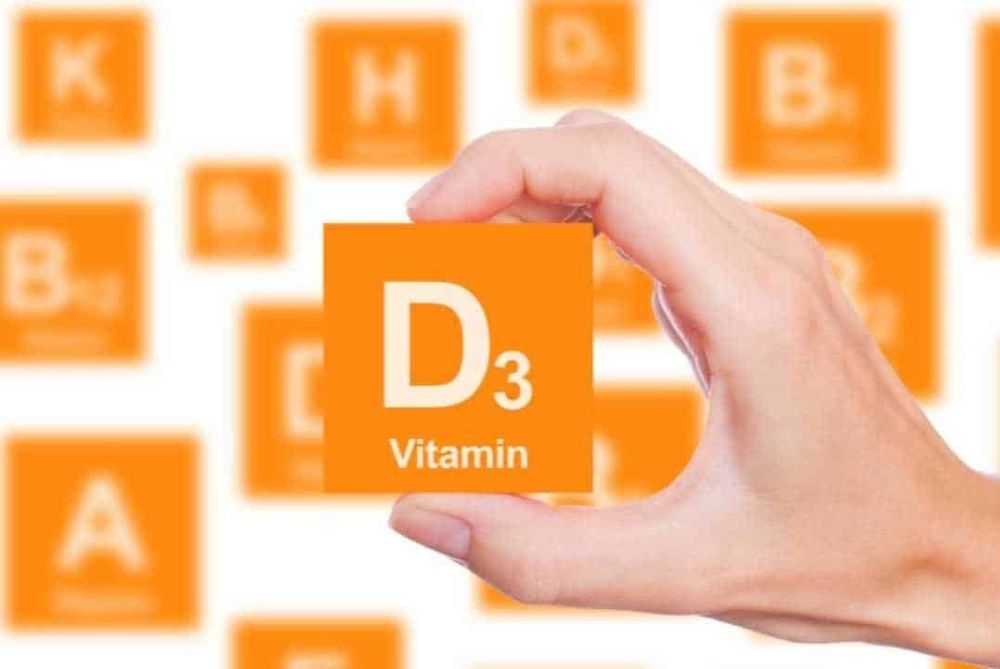Vitamin D plays a crucial role in keeping your body’s cells healthy and functioning properly. Most of us don’t get enough vitamin D, so supplementation is necessary and common. However, excessive supplementation can lead to a buildup of vitamin D, which can be harmful to the body. This article discusses 6 potential side effects of vitamin D excess.
1. Vitamin D Deficiency and Toxicity
Vitamin D is related to calcium absorption, immune function, and the health of bones, muscles, and the heart. It is naturally present in foods and can also be produced by the body when the skin is exposed to sunlight. Most people do not get enough sun exposure to produce sufficient vitamin D, making vitamin D deficiency relatively common. In fact, it is estimated that about 1 billion people worldwide suffer from vitamin D deficiency.
Both vitamin D2 and D3 can be taken in supplement form. Vitamin D3 is produced in response to sunlight and is found in animal products, while vitamin D2 is typically found in plants. Vitamin D3 can significantly raise the levels of vitamin D in the blood compared to D2. Studies have shown that for every 100 IU of vitamin D3 consumed daily, your blood vitamin D levels will increase by about 1 ng/ml (2.5 mmol/l) on average. However, taking high doses of vitamin D3 over a long period can lead to excessive accumulation in the body, resulting in vitamin D3 toxicity. Vitamin D toxicity occurs when the concentration of Vitamin D in the blood exceeds 150 ng/ml (375 nmol/l). Since vitamin D is stored in fat in the body and released slowly into the blood, the effects of toxicity can last for months after you stop using the supplement. It is important to note that toxicity is uncommon and generally only occurs in individuals who take high, long-term doses of supplements without monitoring their blood levels. You could also accidentally consume too much vitamin D by taking doses much higher than those listed on the label. Below are the 6 main side effects of excessive vitamin D.

2. Elevated Vitamin D Levels in the Blood
While adequate levels of vitamin D in the blood strengthen the immune system and protect against diseases such as osteoporosis and cancer, there is no universally agreed optimal range for what constitutes an appropriate level.
A vitamin D level of 30 ng/ml (75 mmol/l) is generally considered adequate, and the recommended vitamin D intake should be maintained at 40–80ml (100–200 mmol/l). Vitamin D levels above 100 ng/ml (250 mmol/l) may be harmful.
Many individuals are now taking vitamin D supplements, yet it's uncommon to find people with excessively high levels of this vitamin in their blood. A recent study that examined data from over 20,000 people over a period of 10 years revealed that only 37 people had levels exceeding 100 ng/ml (250 mmol/l). Only one person had actual toxicity, with a level of 364 ng/ml (899 mmol/l).
In one case study, a woman had a level of 476 ng/ml (1,171 nmol/l) after taking 186,900 IU of vitamin D3 daily for two months. This was a massive dose, 47 times higher than the recommended upper safe limit of 4,000 IU per day. The woman was hospitalized after experiencing fatigue, memory loss, nausea, vomiting, slow speech, and other symptoms.
Although only extremely large doses can lead to rapid toxicity, even strong proponents of vitamin D supplements advise keeping daily intake under 10,000 IU.
3. Elevated Calcium Levels in the Blood
Vitamin D helps the body absorb calcium from the foods you eat, which is one of its most important roles. However, excessive vitamin D can lead to dangerously high calcium levels in the blood, causing uncomfortable and potentially harmful symptoms. Signs of vitamin D toxicity or high calcium levels in the blood include:
- Digestive issues such as vomiting, nausea, and stomach pain
- Fatigue, dizziness, and confusion
- Increased thirst
- Frequent urination
The normal range for blood calcium levels is 8.5 - 10.2 mg/dl (2.1 - 2.5 mmol/l). In one case study, an elderly man with memory loss was taking 50,000 IU of vitamin D daily for 6 months and was repeatedly hospitalized for symptoms related to high calcium levels. In another case, two men were using incorrectly labeled vitamin D supplements, which resulted in blood calcium levels of 13.2 - 15 mg/dl (3.3 - 3.7 mmol/l). Furthermore, it took a year for their levels to normalize after they stopped taking the supplements.

4. Nausea, Vomiting, and Poor Appetite
Many side effects of vitamin D overdose are related to elevated calcium levels in the blood. These include nausea, vomiting, and a poor appetite. However, these symptoms do not occur in everyone with high calcium levels.
One study followed 10 individuals who developed excessive calcium levels after taking high doses of vitamin D to correct vitamin D deficiency. Four of them experienced nausea and vomiting, and three of them lost their appetite. Similar reactions to vitamin D have been reported in other studies. For example, one woman experienced nausea and weight loss after taking a supplement that was found to contain 78 times more vitamin D than the amount listed on the label.
It is important to note that these symptoms typically occur when taking extremely high doses of vitamin D3, which result in calcium levels greater than 12 mg/dl (3.0 mmol/l).
5. Stomach Pain, Constipation, or Diarrhea
Stomach pain, constipation, and diarrhea are digestive side effects commonly associated with food intolerances or irritable bowel syndrome. However, they can also be signs of elevated calcium levels caused by vitamin D toxicity.
These symptoms may occur in individuals taking high doses of vitamin D to address a deficiency. Like other symptoms, the reaction seems to be individualized, even when blood vitamin D levels are similarly high. In one case study, a boy experienced stomach pain and constipation after improperly taking vitamin D supplements, while his brother developed high blood pressure without any other symptoms.
In another case study, an 18-month-old child who was given 50,000 IU of vitamin D3 daily for 3 months developed diarrhea, stomach pain, and other symptoms. These symptoms resolved after the child stopped taking the supplement.

6. Osteoporosis
Since vitamin D plays a crucial role in calcium absorption and bone metabolism, adequate supplementation is essential for maintaining strong bones. However, too much vitamin D can negatively affect bone health. Although many symptoms of excessive vitamin D are believed to be due to high calcium levels in the blood, some researchers suggest that high doses of vitamin D may lead to low levels of vitamin K2 in the blood. One of vitamin K2's most important functions is to help keep calcium in the bones and remove it from the blood. It is believed that very high levels of vitamin D may reduce the activity of vitamin K2. To protect against osteoporosis, it is important to avoid excessive vitamin D supplementation and also consider taking vitamin K2. You can also consume foods rich in vitamin K2, such as dairy products and meat from grass-fed animals.
7. Kidney Damage
Frequent consumption of excessive vitamin D can lead to kidney damage. In one case study, a man was hospitalized for kidney failure after experiencing elevated calcium levels and other symptoms following vitamin D injections prescribed by his doctor. In fact, most studies have reported moderate to severe kidney damage in individuals with vitamin D toxicity. In a study of 62 people who were given excessively high doses of vitamin D, all showed signs of kidney damage, regardless of whether they had healthy kidneys or pre-existing kidney conditions. Kidney damage is treated with oral or intravenous hydration and medication.
Vitamin D is extremely important for overall health. Even with a healthy diet, you may still need Vitamin D supplements to achieve optimal levels. Be sure to avoid taking too much vitamin D. Generally, 4,000 IU or less per day is considered safe, as long as your blood levels are monitored.
Additionally, make sure to purchase supplements from reputable manufacturers to reduce the risk of overdose from incorrectly labeled products. If you are supplementing with vitamin D and experience any symptoms listed in this article, consult a healthcare professional as soon as possible.
Source: healthline.com













